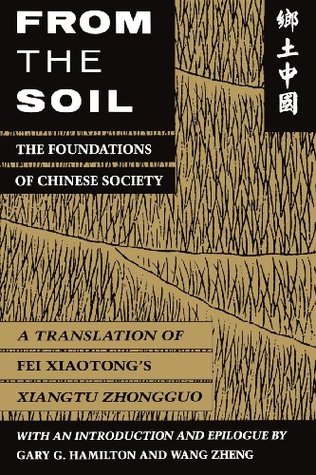Kindle Notes & Highlights
by
Fei Xiaotong
Read between
January 31 - February 7, 2023
Using our own terms, we would identify the first type of society as one based on ritual and customs (lisu) and the second as one based on law and reason (fali).
Trust in rural society is based not on the importance of contracts but, rather, on the dependability of people, people who are so enmeshed in customary norms that they cannot behave in any other way.
Language can occur only in the context of a group’s common experience. In large groups, people’s experiences are complex and often disconnected. They have fewer common experiences on which to base their language. Therefore, the larger the group, the more generalizable and simple the common language becomes—as can be clearly seen in the history of languages.
Every culture has “words,” but not all cultures have a written language. I emphasize this point because I want to show that, generally speaking, rural society is a society without a written language.
Because people seldom move, they grow up not only among familiar people but also in familiar places. Staying in the same place for such a long time, the people there seem to intermingle with the earth itself. The experiences of one’s ancestors with this familiar patch of earth are passed down and necessarily become one’s own experiences. The ages speak as if their lessons were written in stone. These lessons surround ensuing generations and are repeated endlessly, so that each person’s experiences are the same as every other person’s. It is like a play repeated on the stage; actors need only
...more


